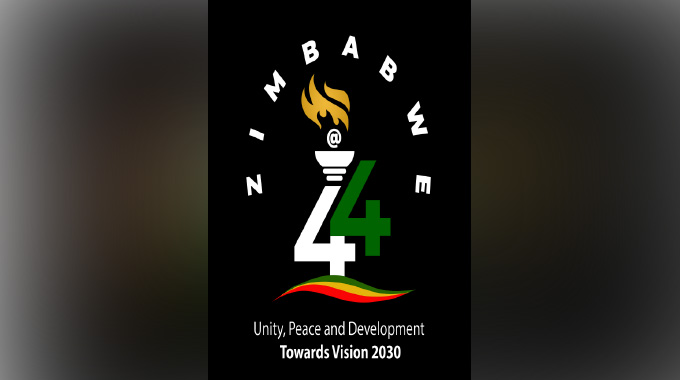Make tourism front-runner in economic development
That is the sorry state in which Zimbabwe’s otherwise lucrative tourism industry finds itself today with tour and adventure operators featuring in the lexicon of Tourism and Hospitality Minister, Engineer Walter Mzembi as “existing Shylocks in the sector”.
The minister described in rather harsh terms, these traders as people holding permits in trust on behalf of Zimbabweans but want to hold the people to ransom through their extortionist practices. As a result, home holiday-makers who by their sheer numbers could make tourism realise its full potential as an anchor for our economy are inhibited from full participation in the industry by high rates that only foreign tourists can afford because of their higher incomes.
Now the minister responsible for that vital industry appears to have inspired hope for greater access to the country’s tourist attractions by locals with a call for the introduction of a two-tier pricing structure that is likely to see Zimbabweans equalising, or even surpassing the competitive edge that foreign visitors boast over locals, swamping tourist resorts and adventure sites to give the industry a brighter future.
If, as Eng Mzembi indicated, the players concerned resist the call they will only have themselves to blame when the Government takes these bulls by the horns as it were.
In some countries, tourism is an economic lynch-pin — a goose that lays the golden egg — and is nursed like a baby by governments there.
In Zimbabwe, mining and agriculture play dominant roles as pillars of the national economy with tourism viewed by some as playing second fiddle.
But as minerals are wont to run out some day, while climate change takes a heavy toll on agriculture, people will not stop patronising tourist attractions.
It therefore becomes prudent to include locals with their numerical strength among foreign patrons of the hospitality and tourism sector for the economy to stay strong and resilient in the face of anti-Zimbabwe machinations that remain certain as the country refuses to kow-tow to foreign imperialist pressures.
If the adventure and tour operators dilly-dally under a mistaken belief that Minister Mzembi did not mean what he said, rude awakening should be visited upon these businesspeople, say, through regulation for them to toe the line.
Clearly, rates levied by hoteliers, tour and adventure operators are monumentally discriminatory against domestic tourists who must pay up-front for services that their foreign tourist counterparts from comparatively richer countries also pay up-front.
Is it because there is less competition by locals owning facilities in that sector — something that would no doubt lower prices as visitors would prefer less expensive dealers? Or have the operators not been liberated from a colonial mentality that locals did not possess enough spending power to make the Shylock smile all the way to the bank?
Whatever the case might be, Zimbabwe must move with the times, and time has come to change old ways and make greater numbers of Zimbabweans play a bigger role in underpinning the tourism industry and with that the national economy by facilitating greater access to the tourism and hospitality sector.
But cheaper rates on their own will not yield maximum benefits for locals and for tourism as rates tailor-made for locals should be complemented with a massive tourism promotion campaign in big and small towns and in rural areas, with schools being roped in as well.
It is no exaggeration to suggest that a countrywide survey might expose palpable ignorance among educated and less educated Zimbabweans about the tourism spots that the country boasts of and their location, all because of a paucity of publicity.
Some bus companies that only ply country routes do not earn as much as they are likely to reap taking holiday-makers to various tourist attractions at weekends or during holidays.
But when Zimbabweans, workers in urban centres in particular, become sufficiently informed about holiday-making as also a creative pastime to re-energise them, they will take their families to holiday resorts where rates are affordable as a further fillip for the growth of the tourism and hospitality industry.
It is obvious therefore that bus operators stand to gain from organised visits of locals from urban and other centres to tourist attractions.
Employers, aware of higher productivity by their reinvigorated workers, might wish to consider encouraging their employees to spend time refilling at tourist resorts.
Educational tours to places of interest around the country are probably restricted, or fewer apart, because of higher costs people must contend with when spending time at leisure resorts away from home.
Zimbabwe and Zambia will co-host the UN World Tourism Organisation general assembly in 2013 at Victoria Falls, and our government is working on legal arrangements for recapitalisation and importation of vehicles for the safari sector to cater for the hospitality industry, according to Eng Mzembi, in advance of the UN indaba.
Thus, with the State meeting part of its bargain in repositioning the tourism and hospitality industry for greater heights, other key stakeholders should start working flat out to meet their own part of the equation so that 2013 makes Zimbabwe a world competitor in promoting tourism.
As alluded above, the industry needs restructuring, for lack of a better concept, so that Zimbabweans, as hosts will give the UNWTO something memorable as a send-off while cracking a smile at her tourism kitty.
Meanwhile, and as a deliberate strategy for ongoing tourism promotion, why not spruce up the countryside with pertinent cultural tourism activities?
Should this happen, foreign tourists will be drawn away from popular spots such as the Victoria Falls, Matopos, Great Zimbabwe and so on — and into Zimbabwe’s heartland to put the entire country on the world tourism map, while the rural folk taste their fair share of the tourism cake.
At present, traditional dancers are up-rooted from their backgrounds in the periphery and literally held hostage at hotels in major tourist centres where they showcase their act and its cultural imprint for international tourists on whirlwind visits.
If the troupes are made to show off their rich cultural diversity in loco, villages will reap a rich harvest of revenue which can be spent on improving infrastructure such as roads, bridges, schools, clinics and the like.
An end to lopsided tourism will see equalisation or near-equalisation of development opportunities for all Zimbabweans regardless of their location.








Comments